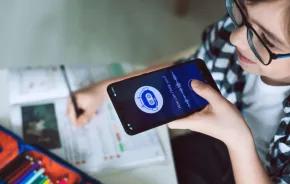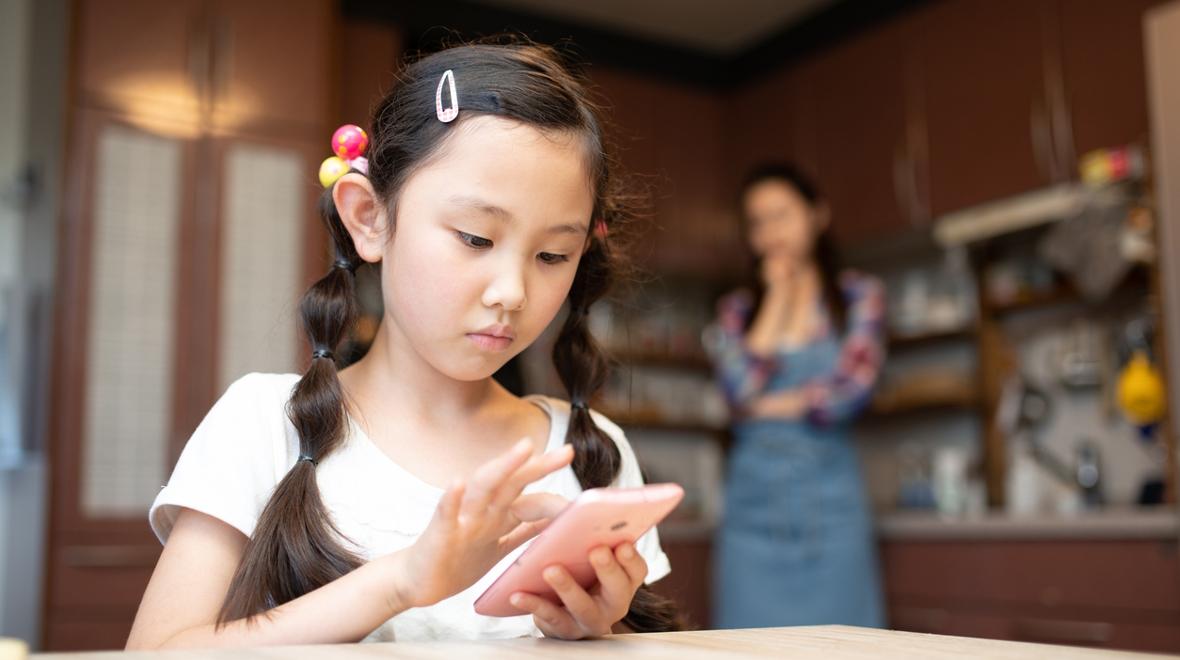
Photo:
iStock
Day after day, my kids would come home from school and daycare, with a single vision for their evenings — their iPads. When they were sad, they wanted a show. When we were traveling, they demanded a show. I realized we were no longer in charge of the house, technology was. My husband and I decided that limiting technology was only creating a standoff, and it was time to pull the plug completely. The iPads left. It was the best decision we’d ever made.
As my five kids embark on their cell phone years, I’m hesitant to take the plunge again. What if they turn into the same tech zombie kids the iPads had created? Would I have to put the digital genie back in the bottle if I bought them phones too soon? Is that even possible?
For over half of parents, it’s not only possible, it’s a huge regret and daily consideration: 2024 data shows that 54 percent of parents across the U.K., Germany, India, Australia and the United States regret giving their child a smartphone. Of those parents surveyed, 70 percent thought their own smartphone-free childhoods created better family time. The survey also found that negative impacts to sleep were seen 64 percent of the time and 61 percent of participants reported physical inactivity amongst children with smartphones.
So, can we take them back? The answer is yes, experts say, and it’s a conversation that not only parents are having, but schools as well. Here’s what to know if you are considering reversing your decision to get your kid a phone.

The argument against phones
What’s so bad about a phone, anyway? Similar to my iPad-addicted kids, phones are designed to pull kids in, and make them want more — more scrolling, snapping and chatting with friends. While some of those urges are a natural part of development and a healthy social life, when it starts to replace real-life friendships and interaction, there’s a problem.
Research continues to show poor mental health impacts and sleep disruption for kids who are using or overusing phones. In response, lawmakers in places like Iowa are proposing bans on cell phones in K–12 classrooms, a movement that’s gaining hold nationwide.
Advocacy groups such as Wait Until 8th and authors like Jonathan Haidt, who wrote “The Anxious Generation,” are pushing back on the idea that phones are just a mainstream part of children’s and teens’ lives. Haidt also brought attention to the important distinction between getting a phone (a “dumb” phone that doesn’t do all the things) versus having a kid on social media, which has proven much more concerning. Erin Loechner, author of “The Opt-Out Family: How to Give Your Kids What Technology Can’t,” is speaking out, giving parents permission and validation to consider other options beyond technology for your kid’s valuable time and attention.
That being said, any parent who wants to give their kid a bit of independence, such as walking to a friend’s house across the neighborhood, or calling in an emergency, knows there are benefits too.
Signs that make you wonder if it was the right choice
While there’s an adjustment period for any family when a child or teen gets a phone, there are some specific signs that might signal that the child isn’t quite ready, is getting too addicted or is otherwise suffering due to their phone.
Laura Kastner, Ph.D., clinical professor in the department of psychiatry and behavioral sciences at the University of Washington and author of books about child development and parenting, shares signs that you might want to reconsider your decision to let your kid have a phone:
- Mood changes and meltdowns: “Especially when transitioning off screens. I like to encourage parents to teach self-regulation by giving kids more time the next day on screens if they cooperate willingly with the agreed-upon limit.”
- Sleep issues: Late night screen use and difficulty falling or staying asleep could be red flags. Regardless of your choice, Kastner says never allow “smart stuff" in the bedroom.
- Tech infiltrating all parts of family life: If screens have made their way into car rides, family hangouts, meal time, or down time, reconsider.
- A spike in transition time “chaos” or more general family conflict: If these times are more stressful and disorganized, consider the impact of “digital wars” or too much screen time the night before.
- Loss of interest in activities: The algorithm is meant to dominate. So pay attention if it is, even over friends and sports.
Kastner says, “It’s never too late to pivot.”
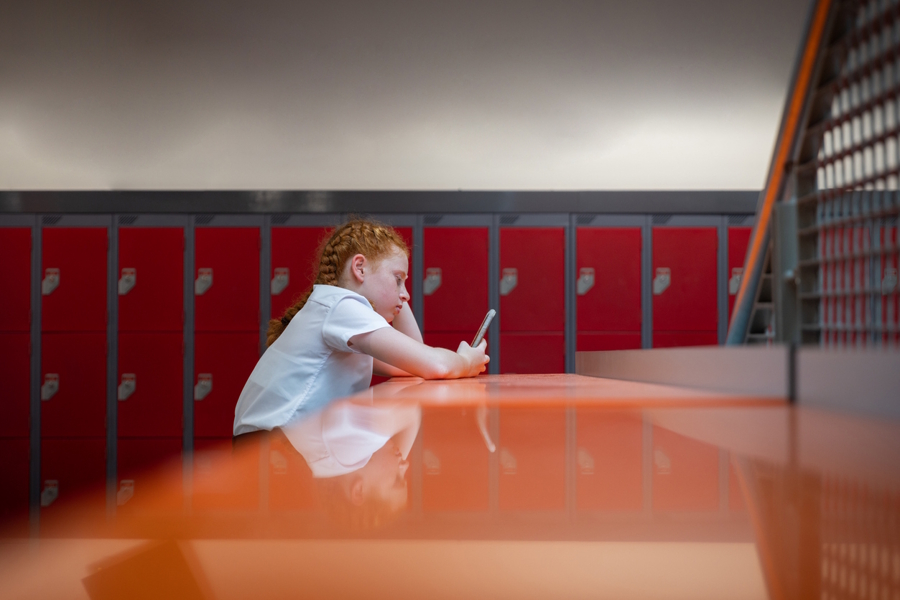
How to reverse your decision to give your kid a phone
It can seem impossible to undo what feels like a big moment for your kid. You might fear that they’ll hate you for it, resent your decision or that they could be socially left out, among other concerns. But, Kastner reminds parents, “Parenting is a series of course corrections. If you’re rethinking your approach, that means you’re paying attention — and that’s a strength.”
So first, she says, take a deep breath and let go of that parenting guilt. Instead, frame it as a family-wide reset, avoiding “shame and blame.”
“It is similar to resets with nutritional changes, such as desserts only on Sundays, more fruits and vegetables, or bedtime changes at the end of the summer such as 8 p.m., not 11 p.m. or free flow … only tech adjustments are even harder,” she says. “Everyone loves their desires — ice cream, staying up late with films, etc. But parents are in charge of healthy habits — theirs and ours.”
Next, clearly explain the issue and the new plan. She suggests saying, “We’ve learned more about how phones affect our brains and relationships, and we want to make sure we’re all using tech in ways that support our health and happiness.” From there, tell them the new plan.
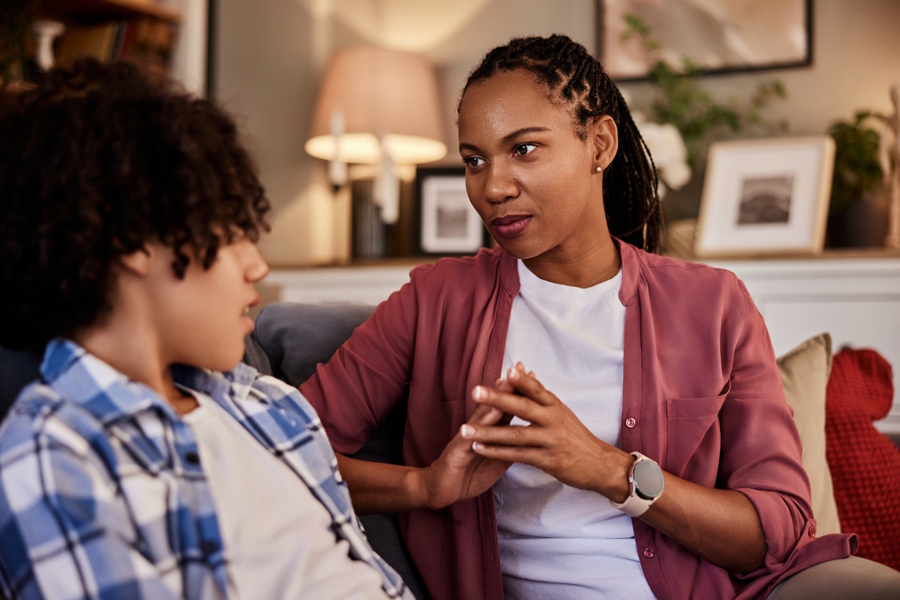
Be open to feedback and big feelings. “Listen to your child’s input. Validate their feelings. And stick with your limits — kind but firm is the sweet spot,” Kastner says.
You can also approach it as a learning opportunity about what to do if you make a mistake, even openly admitting that it was a mistake to give your child a phone too soon. Titania Jordan, author of “Parental Control: A Guide to Raising Balanced Kids in the Digital Era” says, “Feel free to let your children know that you made a mistake, and it’s your job to recalibrate and prioritize their physical — reducing eye strain, getting enough sleep and body movement — and mental health, such as limiting addicting tech, reducing exposure to problematic content and people. And so now, you are doing that appropriately. End of story.”
How to wait until you are really ready to give them a phone
If you haven’t yet chosen an age to give your child a phone, or you’ve recently changed your mind and you’re wondering when you’ll give it back, consider advice from Chris McKenna of Protect Young Eyes whose mantra is “Delay is the way.”
This is something that Jordan commonly hears with parents she works with. “I have never heard a parent say, ‘I should have given my child access sooner.’ Not as it relates to video games, apps, devices, not once. On the flip side, I hear parents daily telling me of the issues and frustrations and harms that they and their children encounter because of too much unprotected tech, too soon.”
Get kids involved
You can also engage kids in their own research, conversations, discussions and decision-making around the right time to get a phone. Kids might not realize how much technology is designed to keep them hooked on their phones, especially social media, and they might be interested in learning how it works. Loechner says, “Our family motto [is]: Be more engaging than the algorithm. I sought out to learn what it was about these algorithms and platforms that are so sticky,” she says. “How does Minecraft introduce a challenge without demotivating? How does TikTok make you feel like there’s always a party going on — and you’re invited? I had a hunch we could use these same principles within our family and guide our children toward their goals, rather than the goals of Silicon Valley.”
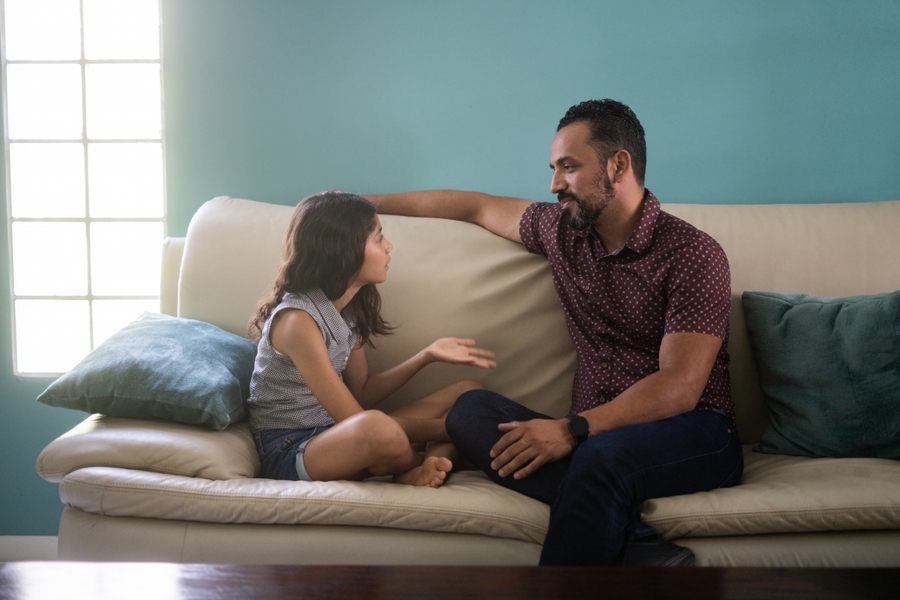
Remember what they’ll be missing (in a good way)
Loechner says she’s only seen benefits from limiting tech and waiting to give her kids phones. “We haven’t encountered any negatives that haven’t made for incredible learning opportunities. The benefits of living differently, the critical thinking skills gained by thinking through solutions (rather than asking Siri), the protection from inappropriate or dangerous scenarios online, the social awareness and empathy — all of these are markers that many parents who choose to be opt-out families have witnessed in their own homes.”
Find community
If you need more help, Loechner recommends building a social circle willing to navigate a low-tech lifestyle with your family, such as her opt-out community. Similarly, Haidt recommends gathering with like-minded people so that kids aren’t constantly hanging out with others who are on their phones, and gives specific recommendations on ages for phones: no smart phones until high school, and no social media until age 16.
Loechner adds that the “tides are turning,” and in the past, finding others to join their movement was difficult. “We’re no longer alone on an island. I used to get asked often, ‘Why would you opt out of personal devices for your kids?’ Now I’m only asked ‘How?’”
Look in the mirror
Finally, consider your own relationship with your phone. As any parent of teens knows first hand, teens love to point out hypocrisy. Loechner says if you are always on your own device, you can consider changing your own use in just a few minutes with her method. You can also become more aware of your own usage by placing a phone in another room, turning it off or creating no phone zones such as the table, living room or bedroom. You’ll quickly have the best antidote to your kid saying, “But you are always on YOUR phone!”
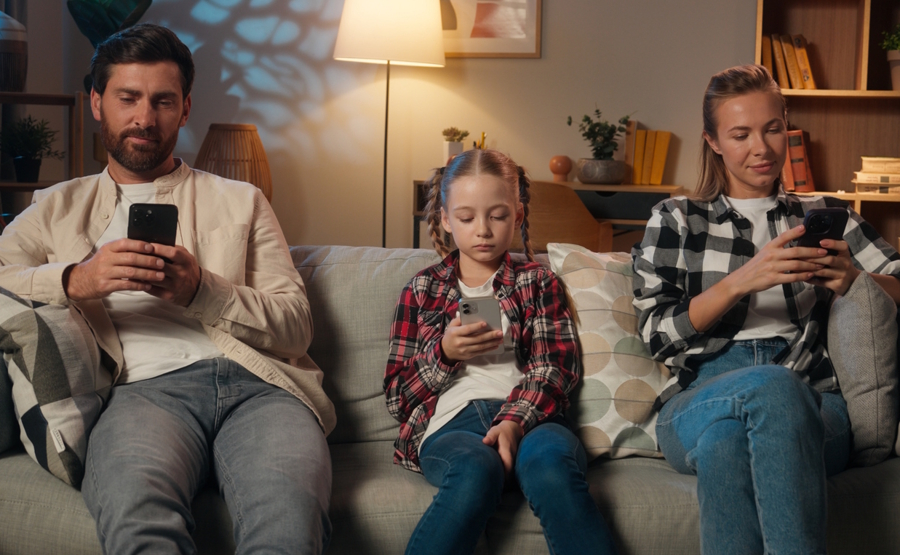
Remember — parenting is hard, and there was no guidebook or even role model to teach modern parents how to navigate tricky situations in a digital world. Give yourself some grace and space to make mistakes and try again. Your kid will love you all the more for it in the long run — even if that first phone-free day is a little rough.
More articles about kids and tech:
For more support and resources surrounding the youth mental health crisis, screen time and social media, and the importance of play, visit ParentMap’s Antidote for the Anxious Generation page. |











